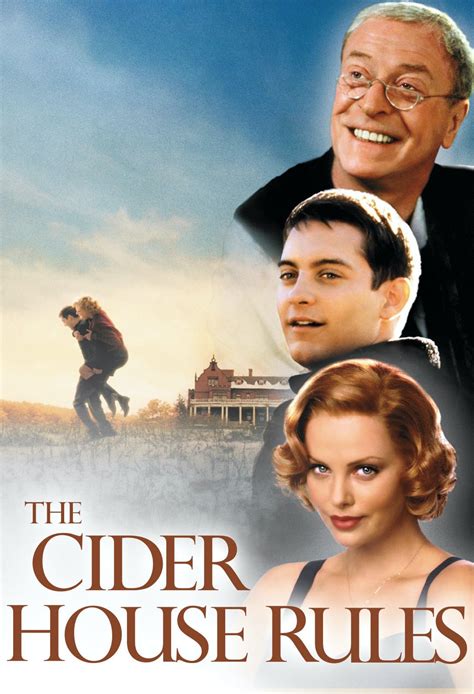The Cider House Rules

Description:
The Cider House Rules is a heartwarming drama about a young man named Homer Wells who grows up in an orphanage run by a kind doctor. As he matures, Homer learns about life, love, and the complexities of the world outside the orphanage walls. The movie explores themes of family, responsibility, and the choices we make that shape our destinies.Keywords:
Orphanage, Abortion, Coming Of Age, Morality, MentorshipWhat is the famous line from Cider House Rules?
In "The Cider House Rules," one of the most famous lines is "You can’t be a doctor if you don’t know how to deliver a baby." This line encapsulates the themes of choice, responsibility, and the moral dilemmas faced by the protagonist, Homer Wells. The film, based on John Irving's novel, explores complex issues surrounding abortion and the ethics of care, emphasizing the importance of personal choice and the consequences that come with it.
Is The Cider House Rules a good movie?
"The Cider House Rules," directed by Lasse Hallström and based on John Irving's novel, is generally regarded as a good movie. Released in 1999, it features strong performances, particularly from Tobey Maguire, Michael Caine, and Charlize Theron. The film addresses complex themes such as abortion, orphanhood, and moral dilemmas, prompting thoughtful discussions. It received critical acclaim, earning two Academy Awards, and was nominated for several others. The emotional depth and character development contribute to its positive reception.
Is the movie Cider House Rules based on a true story?
"The Cider House Rules" is not based on a true story but is adapted from John Irving's 1985 novel of the same name. The film, released in 1999, explores themes of orphanhood, abortion, and moral dilemmas through the life of Homer Wells, who grows up in a Maine orphanage run by Dr. Wilbur Larch. While the characters and events are fictional, the story addresses real social issues of the time, particularly concerning the legality and ethics of abortion in the early 20th century.
What is the movie The Cider House Rules about?
"The Cider House Rules," directed by Lasse Hallström and based on John Irving's novel, follows the life of Homer Wells, an orphan raised in a Maine orphanage run by Dr. Wilbur Larch, who performs illegal abortions. As Homer grows up, he struggles with his identity and moral beliefs, particularly regarding abortion. The film explores themes of love, choice, and the search for belonging as Homer leaves the orphanage, experiences life outside, and grapples with the complexities of human relationships and ethical dilemmas.
Explore More Categories:
Alcoholism Monochrome Growing Up Consumerism Emotional Intensity Individualism Gore Youth Culture Arthouse Docudrama Mutant Northern Ireland Psychological Manipulation Radiation Pain Motherhood Claustrophobia Buddy Comedy Harassment Character Driven Drama Family Dynamics Truth Meltdown Independent Film Underworld